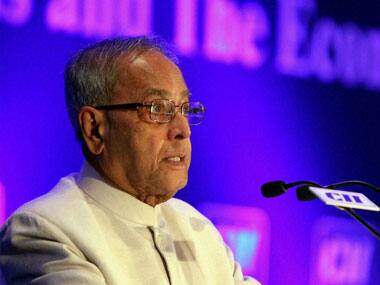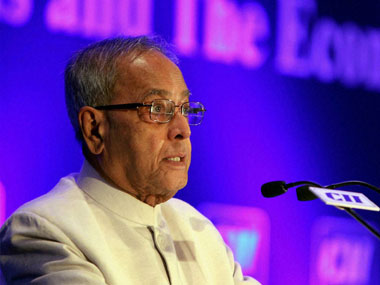Not being a student of economics has its advantages. Looking at the domestic and global economic affairs from a distance with no specific urge or compulsion to grasp the nuances, you can rubbish established economic theories citing they do the world no good. You can claim that the theories say simple things in complicated, esoteric language but hardly comprehend the reality around in full and offer no complete solution to any problem. You can afford to be irreverent towards economists – if they knew their job why the hell are the economies in every corner of the world in collapse for so long without any sign of recovery? Recession, double-dip recession, inflation, stagflation, negative growth — why would these economics’ equivalent of regular cuss words linger in our consciousness like a foul hangover? [caption id=“attachment_342511” align=“alignleft” width=“380” caption=“Agencies”]
 [/caption] You tend to conclude that economics is an imperfect science, if it qualifies as science at all, loaded with tenuous cause and effect equations and handicapped by the deeply subjective, hence volatile, nature of elements in its universe of study. If you assume that economics is more a science of wisdom in hindsight and afterthought, well you cannot be faulted. You were never a student of the subject in the first place. Growth, they would say, is the panacea to all our economic woes. The higher the growth trajectory, the healthier is the economy and the faster is the trickle down effect. Really? Experience around the world does not exactly reflect so. According to Joseph Stiglitz, Nobel Prize winner for Economics in 1991, rapid economic growth and the associated process of liberalisation and globalisation are creating rich countries with poor people. Evidence from China, Vietnam, India, Brazil and several countries across the world suggest that poverty has deepened after the countries embraced growth oriented economic reforms. The process has created wealth for the nations, made GDP numbers sexy and pitch-forked some from the poor to the middle class bracket. However, it has also created huge economic disparities. The billionaire club in India post-reforms has grown bigger but the people in the poor bracket have also grown disproportionately big. Good economics, from a layman’s perspective, should be about good distribution, not about bland aggregate national income or bright corporate balance sheets. Eleven percent GDP growth means little if 70 percent of a country’s population is in abysmal poverty. In India’s case, obviously, the benefits have been cornered by a few. We have failed to link growth to reduction of poverty. Some economists would suggest it all depends on the nature of the society. The more stratified and hierarchical a society is, the lesser is the scope for quick percolation of wealth. It also depends a lot on prudent government policies which stress on the idea of economic inclusion. The situation is likely to be more difficult in economies such as India with primary dependence on agriculture. Perhaps it is true. But there has to be a solution. Expanding poverty means more insecurity for people and more distrust for the reforms process. The situation allows politics to dominate clear-headed economic thinking. That is the case with India right now. All parties are out to cash in on the general apprehension of the masses and forego reforms. India must embrace foreign direct investment and funds from foreign institutional investors to kick-start its stalled reforms process. This has been the refrain from economists of all shades in recent times. Fair enough. More money means more economic activity, more allied industries, more jobs for people and higher growth numbers. At least in theory it should be like that. With domestic saving and other resources not big enough to resuscitate a sinking economy it appears a good idea. But does not coupling national economy with international economy mean exposing the country to potentially damaging global developments? One of the reasons why India escaped more or less unscathed during the 2008-09 global recession was it was relatively de-coupled from the global funds. The flight of FII and FDI money was not strong enough to shake the economy to the bones. Reading the depressing headlines on newspapers one might assume that India’s economy is one of the worst managed in the world. But even a pedestrian look at the state of economic affairs in the European nations, China and even the US makes it clear that, they are managed much worse. Indian economy rests on far stronger fundamentals. Our excessive obsession with foreign money could jeopardise our positives and leave us vulnerable to every economic disaster elsewhere. If Greece is mismanaged, India has to suffer. If the European Union or the US makes a mess of itself India has to take the brunt. Going by the current trend the most of the world would stay in crisis at any given time. FDI is not bad. But why not be careful about it? Why consider it as silver bullet for our troubles? After all it is borrowed money. There must be other ways to overcome the crisis. Of course, this is a layman’s perspective. Economists would know better. It would help if they moved beyond theories and think original.
[/caption] You tend to conclude that economics is an imperfect science, if it qualifies as science at all, loaded with tenuous cause and effect equations and handicapped by the deeply subjective, hence volatile, nature of elements in its universe of study. If you assume that economics is more a science of wisdom in hindsight and afterthought, well you cannot be faulted. You were never a student of the subject in the first place. Growth, they would say, is the panacea to all our economic woes. The higher the growth trajectory, the healthier is the economy and the faster is the trickle down effect. Really? Experience around the world does not exactly reflect so. According to Joseph Stiglitz, Nobel Prize winner for Economics in 1991, rapid economic growth and the associated process of liberalisation and globalisation are creating rich countries with poor people. Evidence from China, Vietnam, India, Brazil and several countries across the world suggest that poverty has deepened after the countries embraced growth oriented economic reforms. The process has created wealth for the nations, made GDP numbers sexy and pitch-forked some from the poor to the middle class bracket. However, it has also created huge economic disparities. The billionaire club in India post-reforms has grown bigger but the people in the poor bracket have also grown disproportionately big. Good economics, from a layman’s perspective, should be about good distribution, not about bland aggregate national income or bright corporate balance sheets. Eleven percent GDP growth means little if 70 percent of a country’s population is in abysmal poverty. In India’s case, obviously, the benefits have been cornered by a few. We have failed to link growth to reduction of poverty. Some economists would suggest it all depends on the nature of the society. The more stratified and hierarchical a society is, the lesser is the scope for quick percolation of wealth. It also depends a lot on prudent government policies which stress on the idea of economic inclusion. The situation is likely to be more difficult in economies such as India with primary dependence on agriculture. Perhaps it is true. But there has to be a solution. Expanding poverty means more insecurity for people and more distrust for the reforms process. The situation allows politics to dominate clear-headed economic thinking. That is the case with India right now. All parties are out to cash in on the general apprehension of the masses and forego reforms. India must embrace foreign direct investment and funds from foreign institutional investors to kick-start its stalled reforms process. This has been the refrain from economists of all shades in recent times. Fair enough. More money means more economic activity, more allied industries, more jobs for people and higher growth numbers. At least in theory it should be like that. With domestic saving and other resources not big enough to resuscitate a sinking economy it appears a good idea. But does not coupling national economy with international economy mean exposing the country to potentially damaging global developments? One of the reasons why India escaped more or less unscathed during the 2008-09 global recession was it was relatively de-coupled from the global funds. The flight of FII and FDI money was not strong enough to shake the economy to the bones. Reading the depressing headlines on newspapers one might assume that India’s economy is one of the worst managed in the world. But even a pedestrian look at the state of economic affairs in the European nations, China and even the US makes it clear that, they are managed much worse. Indian economy rests on far stronger fundamentals. Our excessive obsession with foreign money could jeopardise our positives and leave us vulnerable to every economic disaster elsewhere. If Greece is mismanaged, India has to suffer. If the European Union or the US makes a mess of itself India has to take the brunt. Going by the current trend the most of the world would stay in crisis at any given time. FDI is not bad. But why not be careful about it? Why consider it as silver bullet for our troubles? After all it is borrowed money. There must be other ways to overcome the crisis. Of course, this is a layman’s perspective. Economists would know better. It would help if they moved beyond theories and think original.
Economy & half-truths: Who says growth is good?
Akshaya Mishra
• June 13, 2012, 19:25:52 IST
Our excessive obsession with foreign money could leave us vulnerable to every economic disaster elsewhere. It would help if economists moved beyond theories and think original.
Advertisement
)
End of Article